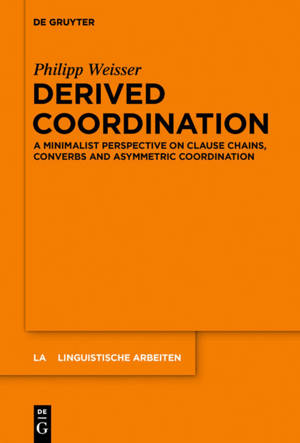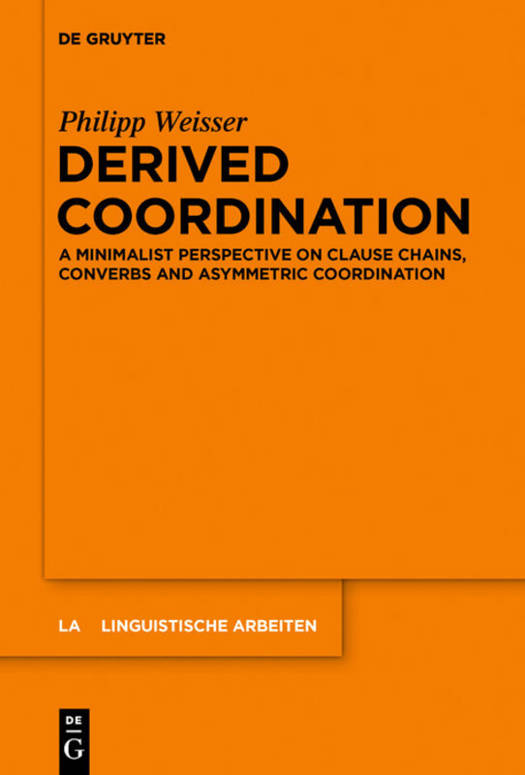
- Retrait gratuit dans votre magasin Club
- 7.000.000 titres dans notre catalogue
- Payer en toute sécurité
- Toujours un magasin près de chez vous
- Retrait gratuit dans votre magasin Club
- 7.000.0000 titres dans notre catalogue
- Payer en toute sécurité
- Toujours un magasin près de chez vous
Derived Coordination
A Minimalist Perspective on Clause Chains, Converbs and Asymmetric Coordination
Philipp WeisserDescription
This monograph explores the different types of clausal relations in the world's languages. In the recent literature, there have been claims that the strict dichotomy of subordination and coordination cannot be maintained since some constructions seem to be in between these two categories. This study investigates these constructions in detail.
The first part is concerned with clause chaining constructions, while the second is concerned with different cases of asymmetric coordination in English. In both parts, it is shown that the different tests to distinguish clausal relations indeed yield different results for the specific constructions. This poses a severe challenge for the established theories of clausal relations. However, as it is argued, recent analyses of coordination provide for the possibility to map a subordinate structure onto a coordinate one by means of regular transformational rules. It is shown that a single movement step derives all the peculiar properties of the phenomena in question.
This book thus provides the first comprehensive solution for a long-standing problem in theoretical syntax.
Spécifications
Parties prenantes
- Auteur(s) :
- Editeur:
Contenu
- Nombre de pages :
- 249
- Langue:
- Anglais
- Collection :
- Tome:
- n° 561
Caractéristiques
- EAN:
- 9783110443066
- Date de parution :
- 28-08-15
- Format:
- Livre relié
- Format numérique:
- Genaaid
- Dimensions :
- 156 mm x 234 mm
- Poids :
- 566 g







